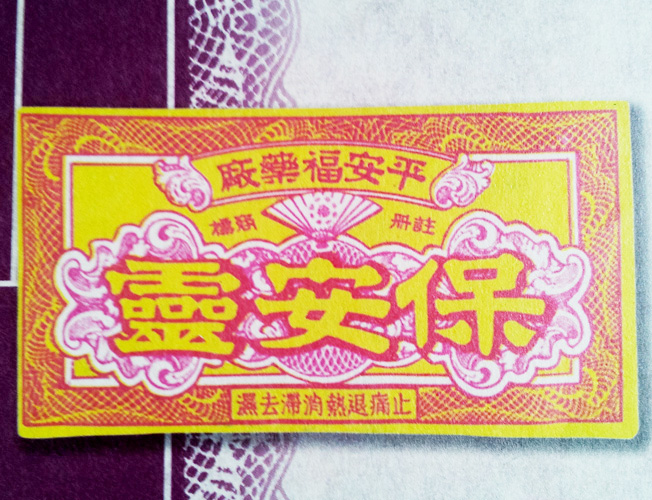Everyone accepts at some point in their childhood that hearts are not actually the ivy leaf-like ideograph that’s come to represent them. (“❤️”) The anatomy of the organ — essentially a veiny sack held in place by a tangle of tubes — is fundamental in Western biomedicine and often the first thing taught in basic anatomy.
But Traditional Chinese Medicine (TCM) approaches the heart much differently. How it, along with the rest of the organs, is conceived has more to do with its role and function within the body’s holistic system.
There’s one essential feature of the organs in TCM that does relate to their “form” though, but in a way that’s incomprehensible to Western biomedicine. That’s their nature of being either yin or yang, classical concepts fundamental to Chinese medicine.
The five major organ systems in TCM — known as 脏 (“zang“) — are yin in nature, and are responsible for many of the body’s essential functions. Here’s a rundown of these five and a handful of their main duties.
Heart
The regulation of blood is an important function of the Heart (“心” xin) in TCM, just like in Western biomedicine.
Related:
 Taking Pulses, Knowing BodiesArticle Aug 06, 2017
Taking Pulses, Knowing BodiesArticle Aug 06, 2017
But in TCM, this function isn’t only important for circulation.
The Heart has another vital, more unique role as well — one related less to the health of the body than to exterior consequences. In TCM, “the heart governs the mind,” meaning that the Heart also manages most of our mental activity. It also regulates your behavior, and if the Heart isn’t well, situational anxiety or bizarre behavior could be the result.
It therefore follows that in TCM the Heart is said to have a relationship with both verbal and nonverbal speech through the tongue, and with the regulation of facial expressions.
Lungs
Stop for a moment and take a deep breath. When you’re taking in air through The Lungs (“肺” fei), also realize that you’re taking in qi. Since they control the inhalation and regulation of air, The Lungs are also said to therefore “rule qi” and its dispensation throughout the body.
Related:
 Translation and Condensation: Thoughts on QiArticle Aug 17, 2017
Translation and Condensation: Thoughts on QiArticle Aug 17, 2017
Along with regulating the movement of air, The Lungs also control the movement of water and moisture in concert with the Kidneys. Perspiration and urination problems — or anything related to moisture — is often linked to the Lungs in TCM because of this.
Spleen
Some might say that the Spleen (“脾” pi) in TCM is closer to the liver or the pancreas in Western biomedicine than to itself, given that it’s viewed as the most vital organ for digestion.
In TCM, its function is crucial, as the Spleen breaks down the food we eat, transforming it into the Blood and qi our bodies need, and directing it through the proper channels.
Related:
 Changing the Channels: Breaking Down TCM’s Meridian SystemThe Bronze Man, a thousand-year-old teaching implement, helps us visualize some of TCM’s most important health practicesArticle Mar 05, 2019
Changing the Channels: Breaking Down TCM’s Meridian SystemThe Bronze Man, a thousand-year-old teaching implement, helps us visualize some of TCM’s most important health practicesArticle Mar 05, 2019
Many of those channels lead to the body’s muscles and flesh, and therefore the health of the Spleen is thought to be intimately connected with the health of the four limbs. One way to measure the health of the Spleen then is by checking one’s muscle tone. Remember that the next time you flex in the mirror and tell yourself it’s time to hit the gym — it might actually be time to check your Spleen.
The Spleen transcends its digestive role by producing not just qi and Blood, but also creativity and careful thought. A healthy spleen, according to TCM, makes for a crisp mind when pondering deep ideas — and pondering dishes too, considering it’s also supposedly responsible for our sense of taste and ability to distinguish flavors.
Liver
When talking about TCM, most people have heard of qi. It’s the energy that flows through channels called meridians to feed everything from our body’s inner sanctum to its furthest extremities.
This is where the Liver (“肝” gan) enters the picture. The movement and vitality of qi — and consequentially the effectiveness of all qi-related functions in the body — depend upon what’s known as the Liver’s “softening” ability. This softening process tempers the qi and allows it to flow with vitality and vigor, which affects things like blood flow, emotions, digestion, and reproduction.
In order to soften the qi the Liver must rely upon a substance it has a much more intimate relationship with. Blood, which possesses the “softening” ability the Liver uses on qi, is actually stored in the Liver, according to TCM.
For women, healthy menstruation depends on the health of the Liver for this reason.
Related:
 Who Uses Chinese Medicine, and Why?Article Mar 24, 2018
Who Uses Chinese Medicine, and Why?Article Mar 24, 2018
Kidneys
The keepers of the essence, the root of life — both appropriate titles for organs whose role goes far beyond that of sophisticated trash collectors in TCM.
But what could ever afford the Kidneys (“肾” shen) a title as lofty as “the root of life”? The answer is a substance key to the body’s development, and the only way you or anybody is going to make it out of puberty.
TCM calls this substance the “essence,” the source of the body’s birth and maturation, for which the Kidneys act as a storage unit. The essence in TCM is what fuels all life and development in the body — without it, nothing would develop, nothing would flourish. For this reason, problems of infertility or premature aging are often associated with the Kidneys in TCM theory.


















